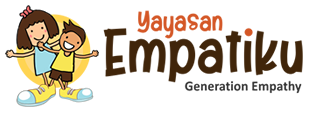Exploring Mental Health Needs in Community Based Rehabilitation & Reintegration, Data Collection in Pattani, Thailand, Duayjai
Exploring Mental Health Needs in Community Based Rehabilitation & Reintegration, Data Collection in Pattani, Thailand, Duayjai
Empatiku goes to Pattani, Thailand
As an observer, Empatiku joined along the process throughly for three days because we have been trying to figure out the connection between art and mental health for victims in conflicted area.
Duayjai Group helps people who have been hurt by conflict, especially those who were part of armed groups but were also mistreated. This includes things like torture, illegal imprisonment, and even disappearances. We try to understand each person’s situation to give them the best help possible.
Step 1: Understanding the Needs
First, we’ll assess your physical and mental health using a special questionnaire (the DSM-V HOPKINS SYMPTOM CHECKLIST-25).
Our trained team will talk to you and gather information, keeping in mind that you may have experienced trauma.
A psychologist will then review this information and give an initial diagnosis.
Our team will also provide some initial guidance on how to best prepare for the rehabilitation process.
Step 2: Creating a Personalized Plan
We’ve worked with psychologists and art therapists to design a mental health rehabilitation program.
This program is specifically tailored to meet the needs of people who have experienced trauma, based on their individual experiences and the initial assessment.
Step 3: Starting the Healing Journey
For those who experienced torture, we offer a three-day psychosocial intervention.
This involves a series of activities designed to support your mental and emotional well-being.
This version:
Uses simpler and more everyday language.
Avoids jargon like “DSM-V” and “Psychosocial Support for Crisis (PFA).”
Focuses on the core message of each step.
Is easier to understand for someone without a medical or psychological background.
The effects of trauma extend far beyond the individual survivor, deeply influencing their families, caregivers, and the broader community. The psychological effects of trauma on survivors can have a ripple effect on their families. For example, trauma-related symptoms such as irritability, anger, or withdrawal may strain relationships within the household. Spouses and children are particularly affected, as they often bear the brunt of emotional outbursts or disengagement. Children, who may not fully understand their parent’s struggles, can internalize these behaviors, potentially developing anxiety, depression, or behavioral issues of their own. Spouses, who frequently act as caregivers, may face caregiver fatigue or emotional burnout, especially if they lack access to external support. This dynamic can lead to a breakdown in family cohesion, creating cycles of stress and frustration.
Over a three-day period, Duayjai facilitated a collaborative workshop with Clinical Psychologists and Art Therapists. The methodology integrated in-depth clinical interviews with body mapping as an art-based therapeutic intervention for trauma processing.
On the inaugural day, participants were briefed on the workshop’s objectives and engaged in introductions with all stakeholders. Subsequently, participants were guided by Art Therapists to create outlines of their bodies on large sheets of paper, followed by skin coloration. Concurrently, a subset of participants underwent in-depth clinical interviews with Psychologists in a separate setting.
Day two involved a continuation of the body mapping activity, where participants incorporated ornaments and symbols representing repressed trauma or emotional wounds. This phase was interspersed with further in-depth clinical interviews. Participants actively shared their experiences and exhibited a sense of comfort and enjoyment in discussing their traumas and current emotional states. During this day, Empatiku conducted interviews with several participants to gather historical information on the Pattani conflict and their current hardships. The day concluded with a poignant evening performance featuring songs that reflected the participants’ suffering in detention camps, their longing for family, and the overwhelming sense of helplessness stemming from the ongoing conflict.
On the final day, participants presented their completed body maps. The presentations evoked strong emotional responses, with many participants experiencing tears as they recounted the traumatic events that had impacted their lives.
All participants demonstrated a high level of comfort and openness in sharing their current emotional and psychological experiences. This openness extended to the in-depth clinical interviews conducted by psychologists. While exhibiting potential vulnerability to Post-Traumatic Stress Disorder (PTSD), all participants also demonstrated the presence of adaptive coping mechanisms and problem-solving abilities.


 EMPATIKU bekerja menginovasi proses pembelajaran dan mentransformasikan sistem kelembagaan untuk menumbuhkan kompetensi emosional masyarakat dan menanamkan empati.
EMPATIKU bekerja menginovasi proses pembelajaran dan mentransformasikan sistem kelembagaan untuk menumbuhkan kompetensi emosional masyarakat dan menanamkan empati.

Leave a Reply
Want to join the discussion?Feel free to contribute!